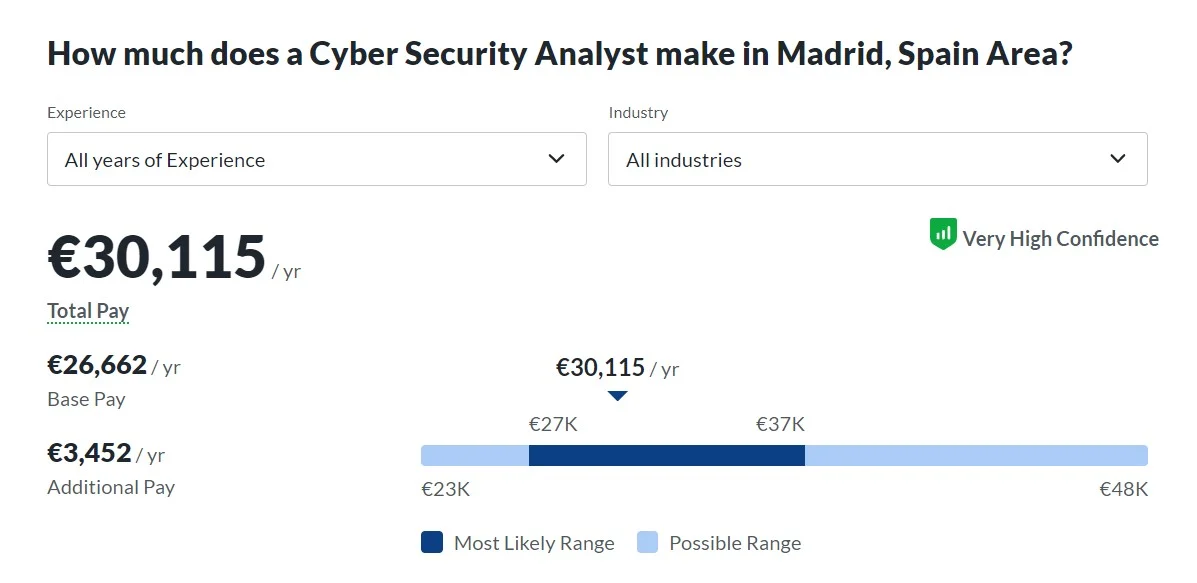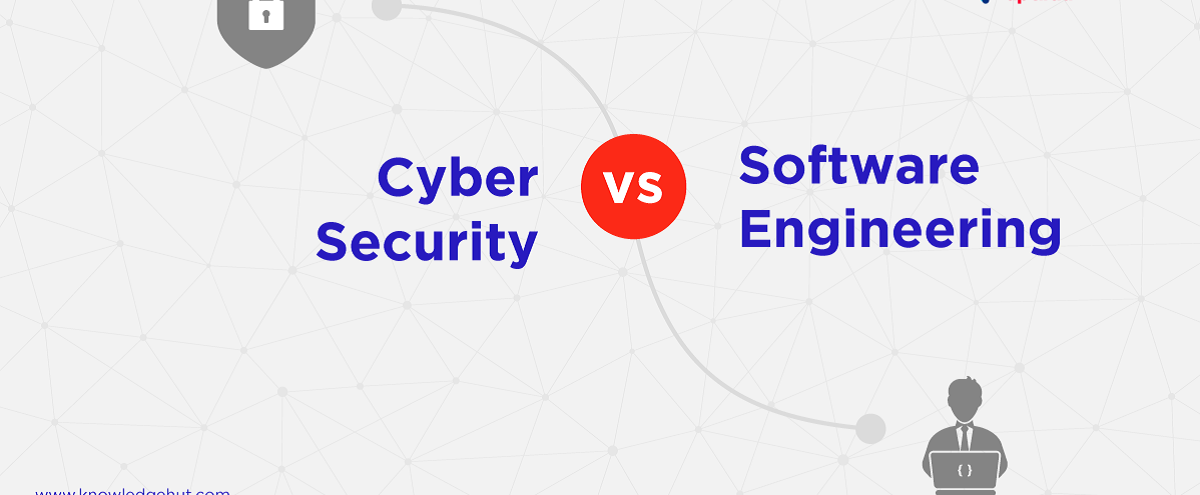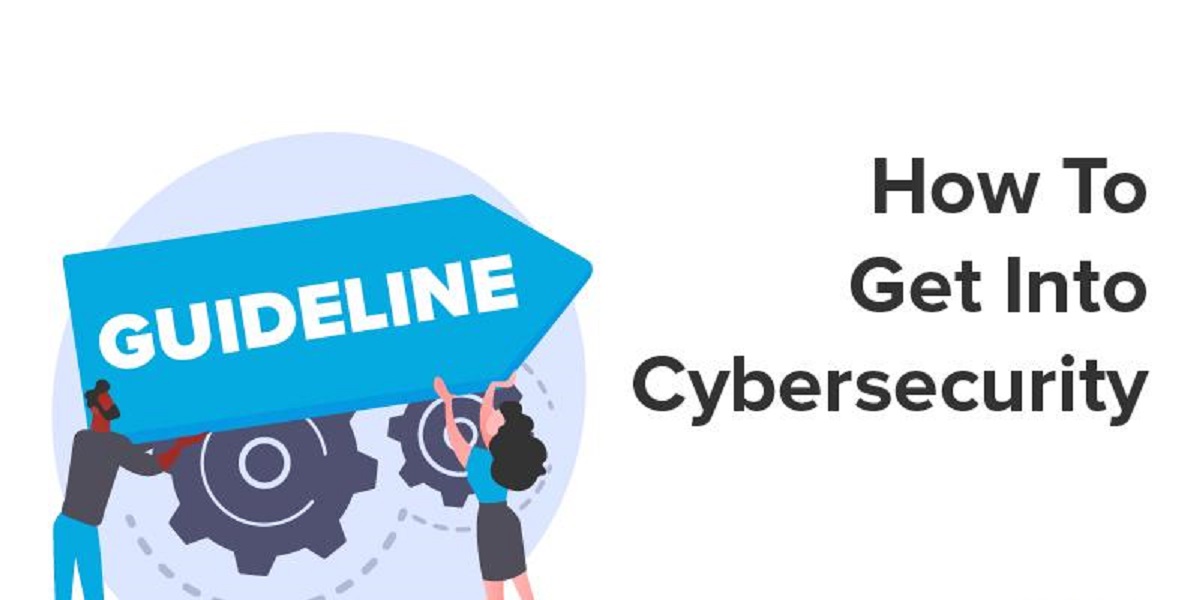Importance of Cybersecurity in Today’s World
In this modern digital age, where technology has become an integral part of our lives, cybersecurity has emerged as a critical field to protect against the increasing threat of cybercrime. The importance of cybersecurity cannot be overstated, as it plays a crucial role in ensuring the confidentiality, integrity, and availability of digital information.
One of the main reasons why cybersecurity is of utmost importance is the escalating frequency and sophistication of cyber attacks. Hackers and malicious actors are constantly evolving their tactics to exploit vulnerabilities in computer systems and networks. From large-scale data breaches to ransomware attacks, cybersecurity breaches can have severe consequences for individuals, organizations, and even nations.
Without effective cybersecurity measures in place, sensitive information such as personal data, financial records, and trade secrets are at risk of being exposed or stolen. This not only poses a significant threat to privacy, but also has a direct impact on individuals’ finances, reputations, and overall well-being.
Cybersecurity is also vital for maintaining operational continuity and stability in various sectors. Organizations of all sizes and types, including government agencies, financial institutions, healthcare providers, and e-commerce platforms, rely heavily on digital infrastructure to carry out their day-to-day operations. A successful cyber attack can disrupt critical services, lead to financial losses, and erode public trust.
Furthermore, in an interconnected world where the internet connects people, devices, and systems globally, cybersecurity is essential for ensuring national security. Governments are increasingly recognizing the potential threats posed by cyber warfare and the need to protect their critical infrastructure, military systems, and confidential information.
Moreover, the rise of emerging technologies such as the Internet of Things (IoT), artificial intelligence, and cloud computing has further emphasized the importance of cybersecurity. With billions of devices connected to the internet, the attack surface has significantly expanded, making it more challenging to protect against potential vulnerabilities and attacks.
Overall, the importance of cybersecurity in today’s world cannot be ignored. It is crucial for safeguarding personal and sensitive information, maintaining operational stability, protecting national security, and enabling the safe and secure adoption of emerging technologies. Organizations and individuals alike must prioritize cybersecurity to mitigate risks and stay ahead of the ever-evolving threat landscape.
Growing Demand for Cybersecurity Professionals
In recent years, the demand for cybersecurity professionals has skyrocketed as organizations recognize the critical need for robust cybersecurity measures. The ever-expanding threat landscape and the increasing frequency of cyber attacks have created a shortage of skilled professionals in the field, making it one of the most sought-after career paths.
One of the main drivers for the growing demand is the rise in cybercrime. Cyber attacks have become more sophisticated and damaging, resulting in significant financial losses and reputational damage for businesses. Organizations are now investing heavily in cybersecurity to mitigate risks and protect their assets, creating a surge in the demand for professionals who can safeguard their digital infrastructure.
The evolving regulatory landscape is another factor fueling the demand for cybersecurity professionals. Governments and regulatory bodies worldwide are imposing stricter data protection and privacy requirements on organizations. Compliance with these regulations is essential to avoid hefty fines and penalties. As a result, businesses are actively seeking cybersecurity experts to ensure they meet these standards and maintain compliance.
The rapid digitization of various sectors has also contributed to the increased demand for cybersecurity professionals. Industries such as healthcare, finance, retail, and manufacturing have embraced digital transformation to streamline processes and enhance efficiency. However, this digitization has expanded the attack surface, making it imperative to have skilled professionals who can identify vulnerabilities, implement security measures, and respond to incidents effectively.
The shortage of cybersecurity talent has created a competitive job market, offering lucrative opportunities for professionals in the field. In addition to attractive salary packages, cybersecurity professionals enjoy job security, career growth prospects, and the chance to work on challenging and rewarding projects.
Furthermore, the COVID-19 pandemic has accelerated the demand for cybersecurity professionals. With remote work becoming the norm, organizations have had to adapt quickly, often with vulnerable security infrastructures. Cybercriminals have exploited this opportunity, targeting remote workers and exploiting security loopholes. As a result, businesses are ramping up their cybersecurity capabilities and investing in skilled professionals to protect their remote workforce.
Overall, the growing demand for cybersecurity professionals is driven by the increasing threat landscape, evolving regulatory requirements, digital transformation, and the impact of the COVID-19 pandemic. This surge in demand offers an exciting and rewarding career path for individuals looking to make a difference in the evolving world of cybersecurity.
Wide Range of Career Options in Cybersecurity
The field of cybersecurity offers a plethora of career options for individuals interested in protecting digital assets and combating cyber threats. As organizations prioritize cybersecurity, the demand for professionals in this field has increased, resulting in a diverse range of career paths to choose from.
One of the most common career paths in cybersecurity is that of a cybersecurity analyst. These professionals are responsible for monitoring networks, identifying potential vulnerabilities, and implementing security measures to mitigate risks. They analyze security incidents, investigate breaches, and ensure the overall integrity of an organization’s information systems.
Another exciting career option is that of an ethical hacker or penetration tester. These professionals use their skills to identify weaknesses in computer systems and networks, simulating cyber attacks to help organizations strengthen their security infrastructure. Ethical hackers work closely with organizations to uncover vulnerabilities and provide recommendations for enhancing their cybersecurity defenses.
Cybersecurity consultants are in high demand as well. These professionals assist organizations in developing cybersecurity strategies, assessing risks, and implementing effective security measures. They provide guidance on regulatory compliance, security policies, and incident response planning. Cybersecurity consultants often work with a wide range of clients, gaining exposure to various industries and challenges.
For those interested in the technical aspect of cybersecurity, a career as a cybersecurity engineer or architect might be appealing. These professionals design, develop, and implement secure systems and technologies. They work closely with software developers, network engineers, and system administrators to ensure that security is integrated into every aspect of an organization’s infrastructure.
There are also specialized career paths within cybersecurity, such as digital forensics analysts and incident response experts. Digital forensics analysts investigate and gather evidence pertaining to cybercrimes, assisting in legal proceedings. Incident response experts are responsible for responding to and managing cybersecurity incidents, minimizing the impact and restoring systems to normal operations.
In addition to technical roles, there are non-technical career options in cybersecurity as well. These include cybersecurity policy analysts, risk managers, and compliance officers. These professionals focus on developing and implementing policies, assessing risks, and ensuring regulatory compliance within organizations.
Furthermore, cybersecurity offers numerous opportunities for advancement and specialization. Professionals can specialize in areas such as network security, cloud security, mobile security, cryptography, and more. Continuous learning and staying updated with the latest trends and technologies in cybersecurity are essential for career growth and professional development.
The wide range of career options in cybersecurity means that individuals can find a path that aligns with their skills, interests, and long-term goals. Whether one prefers a hands-on technical role, a strategic and advisory position, or a combination of both, the field of cybersecurity offers diverse and exciting opportunities for growth and making a significant impact.
Required Skills and Qualifications
To succeed in the field of cybersecurity, professionals need a combination of technical skills, knowledge, and personal qualities. The following are some of the key skills and qualifications required for a successful career in cybersecurity:
Technical Skills: A strong foundation in IT and computer systems is essential. Proficiency in programming languages, such as Python, C++, or Java, is highly beneficial. Understanding networking protocols and systems is crucial, as is familiarity with operating systems like Windows, Linux, and macOS. Knowledge of database management systems, cloud computing, and virtualization technologies is also valuable.
Cybersecurity Knowledge: A comprehensive understanding of cybersecurity concepts, principles, and best practices is crucial. Professionals should be familiar with common types of cyber threats, malware detection and prevention techniques, encryption methods, and security assessment tools. Stay updated with the latest trends, vulnerabilities, and emerging technologies in the cybersecurity landscape.
Certifications: Earning relevant industry certifications can greatly enhance one’s credibility and marketability. Certifications such as Certified Information Systems Security Professional (CISSP), Certified Ethical Hacker (CEH), CompTIA Security+, and Certified Information Security Manager (CISM) are highly regarded and can validate expertise in specific areas of cybersecurity.
Analytical and Problem-Solving Skills: Cybersecurity professionals must possess strong analytical abilities to identify and assess security vulnerabilities, analyze security incidents, and develop effective solutions. Being able to think critically and strategically under pressure is crucial for mitigating risks and responding to incidents promptly.
Communication and Collaboration: Excellent communication skills are essential for effectively communicating complex security issues to different stakeholders, including technical and non-technical professionals. Cybersecurity professionals often work in teams, so the ability to collaborate and coordinate with others is key for successful outcomes.
Ethical Mindset: Integrity is of utmost importance in the field of cybersecurity. Professionals must adhere to ethical standards and the legal frameworks governing cybersecurity practices. Understanding the implications and consequences of unethical behavior is essential for upholding trust and promoting responsible cybersecurity practices.
Curiosity and Continuous Learning: Given the ever-evolving nature of cybersecurity, professionals need to possess a curious and inquisitive mindset. Staying updated with the latest threats, trends, and technologies through continuous learning, attending conferences, and participating in industry forums is crucial for professional growth and staying ahead of emerging risks.
Problem-solving Skills: Cybersecurity professionals should possess strong problem-solving abilities to identify vulnerabilities, develop effective security measures, and respond to incidents and breaches. They must be able to think critically and analytically to assess risks and develop appropriate mitigation strategies.
Having a combination of these skills, qualifications, and personal qualities is crucial for a successful career in cybersecurity. Continuous learning, keeping up with industry trends, and practicing ethical cybersecurity principles will help professionals thrive in this dynamic and challenging field.
Educational Paths to Enter the Field of Cybersecurity
The field of cybersecurity offers various educational paths to enter and excel in the industry. While there is no one-size-fits-all approach, the following are some of the common educational paths pursued by individuals interested in a career in cybersecurity:
Bachelor’s Degree in Cybersecurity: Many universities and colleges offer bachelor’s degree programs specifically designed for cybersecurity. These programs provide a comprehensive understanding of cybersecurity fundamentals, covering topics such as network security, ethical hacking, incident response, cryptography, and risk management. A bachelor’s degree in cybersecurity equips individuals with a solid foundation in both technical and theoretical aspects of cybersecurity, making it a highly regarded qualification in the industry.
Bachelor’s Degree in Computer Science or Information Technology: A degree in computer science or information technology can also serve as a gateway to a career in cybersecurity. These programs provide a broader understanding of computer systems, programming languages, and networking, which are fundamental skills required in cybersecurity. Graduates can then specialize in cybersecurity through relevant certifications, internships, and practical experience.
Master’s Degree in Cybersecurity: For individuals looking to further enhance their knowledge and expertise in cybersecurity, pursuing a master’s degree can be a valuable option. Master’s programs in cybersecurity delve deeper into advanced topics such as digital forensics, secure software development, cyber law, and secure cloud computing. These programs not only expand one’s knowledge base but also provide opportunities for research and specialization in specific areas of cybersecurity.
Certifications: While formal education is important, earning industry-recognized certifications can significantly boost one’s credentials and increase employability. Certifications such as Certified Information Systems Security Professional (CISSP), Certified Ethical Hacker (CEH), Certified Information Security Manager (CISM), and CompTIA Security+ are highly regarded and demonstrate expertise in specific areas of cybersecurity. These certifications can be pursued alongside or after completing a formal degree program, enabling professionals to stay current with the latest trends and technologies in the field.
Bootcamps and Online Courses: For individuals seeking a more accelerated and focused learning experience, cybersecurity bootcamps and online courses can be a viable option. These intensive programs offer hands-on training, practical exercises, and real-world simulations to quickly develop specialized skills in areas such as penetration testing, network security, or digital forensics. While a bootcamp or online course may not provide the same depth as a degree program, they can serve as a valuable stepping stone or a way to acquire specific skills in a shorter timeframe.
Continuing Education and Professional Development: It is important to note that learning in the field of cybersecurity is a continuous process. Cybersecurity professionals must stay updated with the latest threats, trends, and technologies through continuous education and professional development. Attending conferences, participating in webinars, joining industry forums, and pursuing advanced certifications are ways to expand knowledge, acquire new skills, and stay competitive in the dynamic field of cybersecurity.
Ultimately, the educational path to enter the field of cybersecurity depends on an individual’s goals, interests, and current qualifications. Whether through a formal degree program, certifications, bootcamps, or a combination of these, a commitment to continuous learning and professional development is essential for success in this rapidly evolving industry.
Entry-level Jobs in Cybersecurity
Entering the field of cybersecurity provides numerous opportunities for individuals at various levels of expertise. For those starting their careers, there are several entry-level jobs available that can serve as a solid foundation for future growth and specialization in the industry.
Cybersecurity Analyst: As an entry-level cybersecurity analyst, individuals play a crucial role in monitoring and analyzing security systems and networks. They assist in identifying potential vulnerabilities, responding to security incidents, and implementing security controls. This role provides hands-on experience in understanding and mitigating cybersecurity risks, and it lays a strong foundation for future career progression.
Security Operations Center (SOC) Analyst: SOC analysts are responsible for monitoring and responding to security alerts and incidents. They analyze security logs, investigate potential threats, and take appropriate measures to mitigate risks. This role offers practical experience in incident response, threat hunting, and security incident management.
Network Security Engineer: Entry-level network security engineers assist in managing and securing the organization’s network infrastructure. They help in implementing firewalls, intrusion detection and prevention systems, and other network security controls. This role provides exposure to network security fundamentals and the opportunity to work closely with experienced professionals in designing and maintaining secure networks.
Penetration Tester: As an entry-level penetration tester, individuals help organizations identify vulnerabilities in their systems and networks by conducting ethical hacking and penetration testing. They assist in running vulnerability assessments, performing penetration tests, and documenting findings. This role offers hands-on experience in assessing security posture and enhancing the overall resilience of organizations.
Security Consultant: Entry-level security consultants work closely with senior consultants and project teams to assist in developing effective cybersecurity strategies, conducting risk assessments, and advising on best practices. They help organizations identify security gaps and recommend appropriate solutions to enhance cybersecurity posture. This role provides exposure to various industries and the opportunity to gain extensive knowledge in cybersecurity consulting.
Security Administrator: In an entry-level security administrator role, individuals assist in managing the organization’s security systems, including access control, authentication, and security software administration. They help in setting up user accounts, configuring security policies, and monitoring system logs. This role offers practical experience in implementing security controls and ensures the overall integrity and availability of critical systems.
Security Awareness and Training Specialist: Entry-level roles in security awareness and training involve assisting in the development and delivery of cybersecurity education programs for employees. Individuals help create awareness campaigns, develop training materials, and conduct security awareness sessions. This role allows for the development of effective communication and training skills while prioritizing the human element of cybersecurity.
These entry-level jobs provide individuals with the foundational knowledge and experience necessary to advance their careers in cybersecurity. It is important to note that continuing education, certifications, and gaining practical experience through internships or entry-level positions are essential for future growth and success in this rapidly evolving field.
Mid-level Jobs in Cybersecurity
For professionals with a few years of experience in the field of cybersecurity, mid-level positions open doors to more challenging and specialized roles. These positions require a deeper understanding of cybersecurity principles and practical experience in implementing security measures. Here are some common mid-level jobs in cybersecurity:
Security Engineer: Mid-level security engineers are responsible for designing, implementing, and managing security systems and solutions. They assess system vulnerabilities, propose security enhancements, and develop architectures that ensure the confidentiality, integrity, and availability of data. Security engineers work closely with other IT teams to integrate security controls into the organization’s infrastructure.
Incident Responder: Mid-level incident responders play a critical role in responding to security incidents, investigating breaches, and developing incident response strategies. They coordinate with internal teams and external agencies to contain and mitigate the impact of security incidents. Incident responders also conduct post-incident analysis and provide recommendations to prevent future occurrences.
Security Consultant/Advisor: Mid-level security consultants provide expertise and guidance to organizations in developing and implementing effective cybersecurity strategies. They conduct risk assessments, analyze security frameworks, and provide recommendations to mitigate risks and improve overall security posture. Security consultants work closely with clients to align cybersecurity objectives with business goals and regulatory requirements.
Threat Intelligence Analyst: Mid-level threat intelligence analysts monitor and analyze emerging threats and vulnerabilities. They provide insights and recommendations based on their analysis to better prepare organizations against potential attacks. These professionals utilize various tools and techniques to collect, analyze, and disseminate threat intelligence to stakeholders within the organization.
Cybersecurity Auditor: Mid-level cybersecurity auditors assess an organization’s adherence to cybersecurity policies, procedures, and regulatory requirements. They perform audits to identify compliance gaps and provide recommendations for improvement. Cybersecurity auditors also assess security controls, perform risk assessments, and ensure that security measures are in line with industry standards and best practices.
Identity and Access Management (IAM) Specialist: Mid-level IAM specialists focus on managing user identities and access control within an organization. They design and implement IAM processes, policies, and technologies to ensure appropriate user access to systems and data. IAM specialists also address user provisioning, revocation, and authentication processes to minimize the risk of unauthorized access.
Security Operations Center (SOC) Manager: Mid-level SOC managers oversee the day-to-day operations of the security operations center. They lead a team of analysts, manage security incidents, and ensure the efficient functioning of security monitoring tools and technologies. SOC managers also collaborate with other teams to improve incident response procedures and develop security metrics and reports.
These mid-level jobs provide professionals with opportunities to specialize, develop leadership skills, and take on more responsibilities in the field of cybersecurity. Continuous learning, staying updated with industry trends, and acquiring relevant certifications can contribute to career advancement in these roles.
Advanced Jobs in Cybersecurity
For experienced professionals in the field of cybersecurity, advanced job roles offer exciting opportunities to further specialize, lead strategic initiatives, and tackle complex security challenges. These roles typically require a deep understanding of cybersecurity, extensive practical experience, and a strong leadership presence. Here are some common advanced jobs in cybersecurity:
Chief Information Security Officer (CISO): As the senior-most cybersecurity executive in an organization, the CISO is responsible for developing and implementing the overall cybersecurity strategy. They collaborate with senior leadership to align cybersecurity initiatives with business goals, manage cybersecurity budgets, and oversee the organization’s security posture. CISOs also ensure compliance with industry regulations and lead incident response and disaster recovery efforts.
Security Architect: Advanced security architects design and develop the overall security framework and architecture of an organization. They assess business requirements, consider industry standards, identify security risks, and design solutions to address complex security challenges. Security architects ensure that security controls seamlessly integrate into the organization’s infrastructure and align with the larger business objectives.
Security Operations Manager: Advanced security operations managers oversee the operation of the security operations center (SOC). They manage a team of analysts, plan and execute security incident response strategies, and ensure the SOC’s effectiveness and efficiency. Security operations managers also collaborate with other departments to improve processes, implement new technologies, and drive continuous security improvement initiatives.
Cybersecurity Researcher: Advanced cybersecurity researchers focus on analyzing emerging cyber threats, vulnerabilities, and attack techniques. They conduct in-depth research and contribute to the development of innovative security solutions. Cybersecurity researchers may also publish research papers, present at conferences, and collaborate with academic institutions or industry organizations to advance the field of cybersecurity.
Forensic Analyst: Advanced forensic analysts investigate and analyze digital evidence related to cybercrimes. They use specialized tools and techniques to recover, analyze, and present evidence for legal proceedings. Forensic analysts further assist in incident response investigations, identifying the source and extent of a security breach, and providing valuable insights for preventing future incidents.
Security Consultant/Specialist: Advanced security consultants work with organizations to develop and execute strategic cybersecurity initiatives. They provide expert advice on security controls, risk management, and compliance frameworks. Additionally, they conduct in-depth security assessments, develop incident response plans, and assist in the implementation of security technologies and solutions to address client-specific needs.
Security Engineer Lead/Manager: Advanced security engineer leads or managers oversee the design, implementation, and management of security solutions within an organization. They lead a team of security engineers, collaborate with other IT teams, and ensure the delivery of secure and reliable infrastructure. Security engineer leads also provide technical guidance, develop security standards and policies, and lead projects to enhance cybersecurity capabilities.
These advanced cybersecurity jobs provide professionals with opportunities to have a significant impact on their organizations’ security posture and industry-wide practices. With the rapid evolution of cyber threats, staying updated with emerging trends, engaging in continuous learning, and attaining advanced certifications can further enhance career growth and success in these roles.
Salary Range and Job Outlook
In the field of cybersecurity, professionals typically enjoy attractive salary packages due to the high demand for their skills and expertise. Salaries in cybersecurity can vary based on factors such as job level, experience, location, industry, and specialization.
Entry-level cybersecurity professionals can expect to earn salaries ranging from $60,000 to $80,000 per year. As professionals gain experience and move into mid-level positions, the salary range typically expands to $80,000 to $120,000 annually. Advanced cybersecurity roles, such as CISO or senior-level security architect, can command salaries well above $150,000 or more per year. These figures are, of course, general ranges and can vary significantly depending on various factors.
The job outlook for cybersecurity professionals is exceptionally favorable. With the ever-growing threat landscape and the increasing importance of cybersecurity, the demand for skilled cybersecurity professionals continues to outpace the available talent pool. According to the U.S. Bureau of Labor Statistics, the employment of information security analysts, a commonly recognized cybersecurity job title, is projected to grow much faster than the average for all occupations, with a projected growth rate of 33% from 2019 to 2029.
Various factors contribute to the positive job outlook in cybersecurity. As organizations and governments recognize the importance of protecting their sensitive information and digital assets, they continue to invest heavily in cybersecurity measures. The rise of emerging technologies, increasing regulatory requirements, and the globalization of cyber threats also contribute to the increased demand for cybersecurity professionals.
Additionally, the COVID-19 pandemic has further emphasized the need for robust cybersecurity measures. The rapid shift to remote work and increased reliance on digital technologies has exposed vulnerabilities and heightened the risk of cyber attacks. As organizations adapt to new work environments, they prioritize the strengthening of their cybersecurity capabilities, leading to an increased need for cybersecurity professionals.
Furthermore, the job outlook is not limited to specific industries. Virtually every industry, including finance, healthcare, government, technology, and retail, requires cybersecurity professionals to protect their assets and data. This wide range of job opportunities allows professionals to choose the industry that aligns with their interests and career goals.
Overall, the salary range and job outlook in cybersecurity continue to be highly favorable. Professionals in this field can enjoy competitive salaries, excellent job prospects, and numerous opportunities for career growth and advancement. Keeping abreast of emerging technologies, gaining relevant certifications, and continuously enhancing skills and knowledge are essential for staying competitive and thriving in this rapidly evolving field.
Tips for Starting a Career in Cybersecurity
Starting a career in cybersecurity can be both fulfilling and rewarding. As the demand for cybersecurity professionals continues to grow, it is essential to take the right steps to enter and succeed in this field. Here are some useful tips for starting a career in cybersecurity:
1. Gain Technical Knowledge: Develop a strong foundation in computer systems, networks, programming languages, and operating systems. A good understanding of the technical aspects of cybersecurity is crucial for success in the field.
2. Pursue Relevant Education and Certifications: Consider formal education such as a degree in cybersecurity, computer science, or information technology. Additionally, earning industry-recognized certifications such as CISSP, CEH, or CompTIA Security+ can enhance your qualifications and credibility.
3. Build Practical Experience: Gain hands-on experience through internships, entry-level positions, or volunteering opportunities. Participate in capture the flag (CTF) competitions or work on cybersecurity projects to develop practical skills and demonstrate your abilities.
4. Stay Informed: Stay updated with the latest trends, threats, and technologies in the cybersecurity landscape. Follow industry blogs, participate in forums, and engage in continuous learning through webinars, workshops, and conferences.
5. Join Cybersecurity Communities: Engage with cybersecurity communities, both online and offline. Networking with professionals in the field can provide valuable insights, mentorship opportunities, and access to job openings.
6. Develop Soft Skills: While technical skills are crucial, don’t neglect the importance of soft skills. Effective communication, problem-solving, and teamwork skills are essential for collaborating with colleagues, understanding clients’ needs, and presenting complex security issues to stakeholders.
7. Specialize and Continuously Learn: Consider specializing in a specific area of cybersecurity that aligns with your interests and career goals. Continuous learning is critical in this field, as cybersecurity is ever-evolving. Stay updated with emerging technologies, threats, and best practices.
8. Network and Seek Mentorship: Attend conferences, meetups, and industry events to expand your professional network. Seek out mentors who can guide you in your career journey and provide valuable insights and advice.
9. Stay Ethical: Uphold ethical standards and practice responsible cybersecurity. Ethical behavior and integrity are foundational in this field, as trust and credibility play a vital role in maintaining cybersecurity.
10. Embrace a Lifelong Learning Mindset: The field of cybersecurity is constantly evolving, and professionals must adapt to new technologies and emerging threats. Embrace a lifelong learning mindset and continuously seek opportunities to expand your knowledge and skillset.
Starting a career in cybersecurity requires dedication, continuous learning, and practical experience. By following these tips and staying committed to your professional growth, you can build a successful and fulfilling career in this exciting and vital field.

























